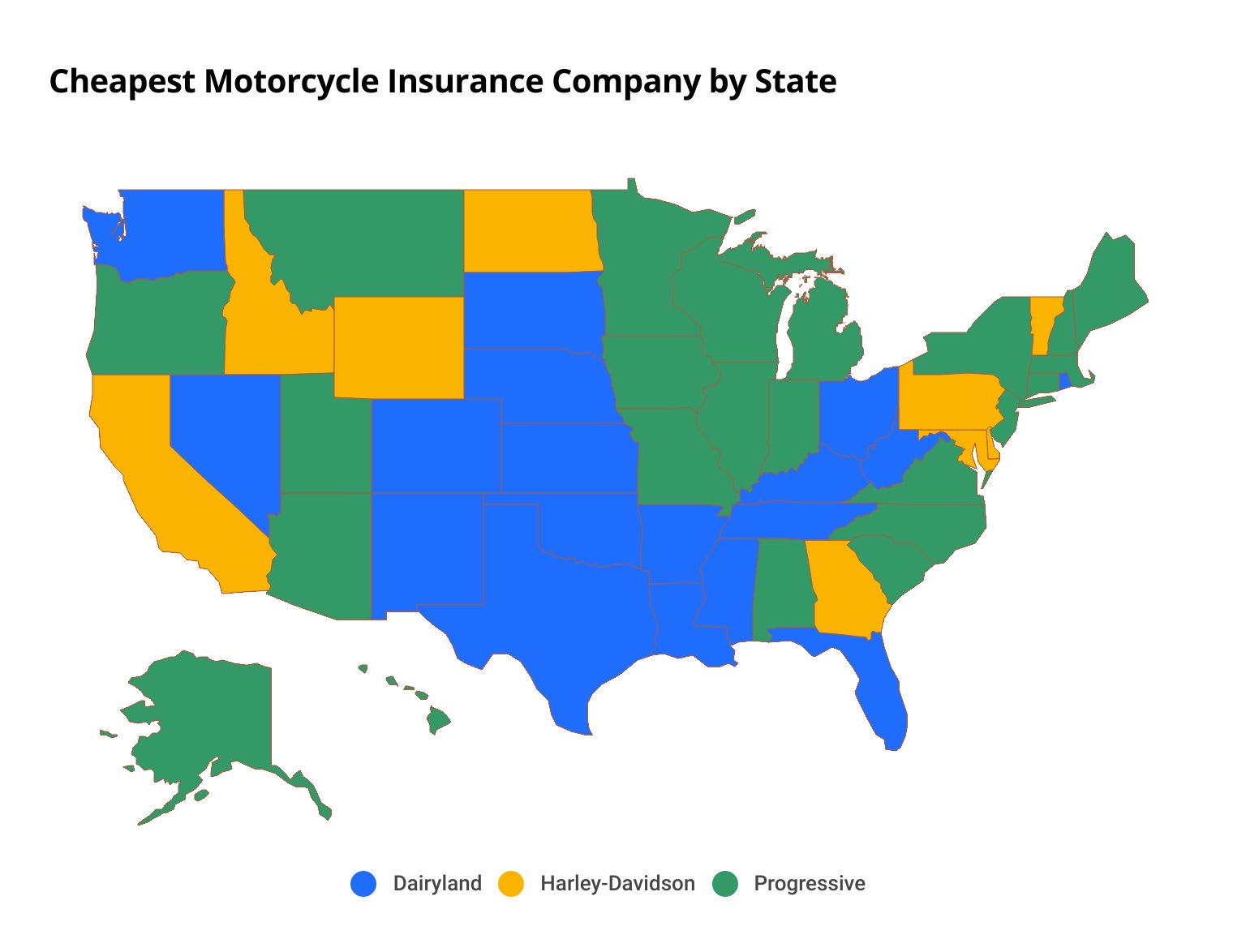Golf Cart Insurance Basics
Every golf cart owner should consider purchasing golf cart insurance, even if the cart is only driven on their property. Here's everything... Read More
Find Cheap Motorcycle Insurance Quotes in Your Area

Understand how motorcycle insurance can protect you and your ride.
Collision coverage
Collision coverage pays for damage to your bike if you hit another vehicle or object.
Comprehensive coverage
Comprehensive coverage pays to fix or replace your bike after vandalism, theft or damage by an "act of God," like hail.
Bodily injury liability
Bodily injury protection pays for the medical bills of other drivers and passengers if you cause an accident.
Property damage liability
Property damage liability covers any damage you cause to someone else's vehicle or property.
Find the best motorcycle insurance in your state.

The average cost of motorcycle insurance is $33 per month, or $399 per year, for full coverage. Three main factors affect rates: where you live, the amount of coverage you need and your riding history.
The cheapest motorcycle insurance companies are typically Dairyland, Progressive and Harley-Davidson.
However, rates vary by state. So the cheapest company near you could differ from the best option nationally. That's why comparing quotes from multiple companies is important when shopping for motorcycle insurance.
No single motorcycle insurance company is best for every rider. Major companies like Progressive and Geico offer standard motorcycle insurance, with discounts for bundling your auto and homeowners insurance. On the other hand, specialty companies like Dairyland and Harley-Davidson provide more extensive coverage to dedicated riders.
The best way to find cheap motorcycle insurance is by comparing quotes from multiple companies. You should also look for discounts. Many companies offer savings for bundling your motorcycle and auto insurance, making automatic payments or taking a motorcycle safety course.
You can get the cheapest motorcycle insurance rates by buying the minimum coverage required in your state. Most states only require a small amount of liability coverage for bodily injury and property damage. However, you won't have any coverage for your bike if you cause a crash. This may not be the best choice if you can't afford to replace your bike after an accident.
Every state has its own laws, but it's generally harder to insure your bike if you don't have a valid motorcycle license or endorsement. Most insurance companies require your license info. Companies that don't may treat you as a riskier customer and charge you more for coverage.
Every golf cart owner should consider purchasing golf cart insurance, even if the cart is only driven on their property. Here's everything... Read More
Ambetter has the cheapest health insurance in Florida. Plans cost as little as $451 per month for a 40-year-old before... Read More
So your job doesn't provide dental insurance? Or maybe you're between jobs and waiting for the next insurance plan to kick in.... Read More
Progressive has the cheapest car insurance in Kalamazoo for most people, at an average cost of $140 per... Read More
Blue Cross Blue Shield has the best health insurance in Texas, with rates as low as $433 per month for a Silver plan. But Ambetter has... Read More
Undergraduate students can expect to pay 5.05% on federal loans and between 3.50% and 12% on private student loans. Find out the current... Read More
UnitedHealthcare has the best health insurance in New Jersey. Its Silver plans start at $568 per month before... Read More
Progressive has the cheapest auto insurance in Flint, MI, at an average of $160 per month for a full coverage... Read More
Our team of analysts at ValuePenguin decided to dive into the data behind how much people across the country owed on their student loans.... Read More
To find the average cost of motorcycle insurance and the cheapest companies, ValuePenguin collected quotes across all 50 states in the U.S. Rates are for a 45-year-old single man who owns a 2018 Honda CMX500 Rebel.
Quotes are for a full coverage policy, which includes higher liability limits than state requirements along with comprehensive and collision coverage.